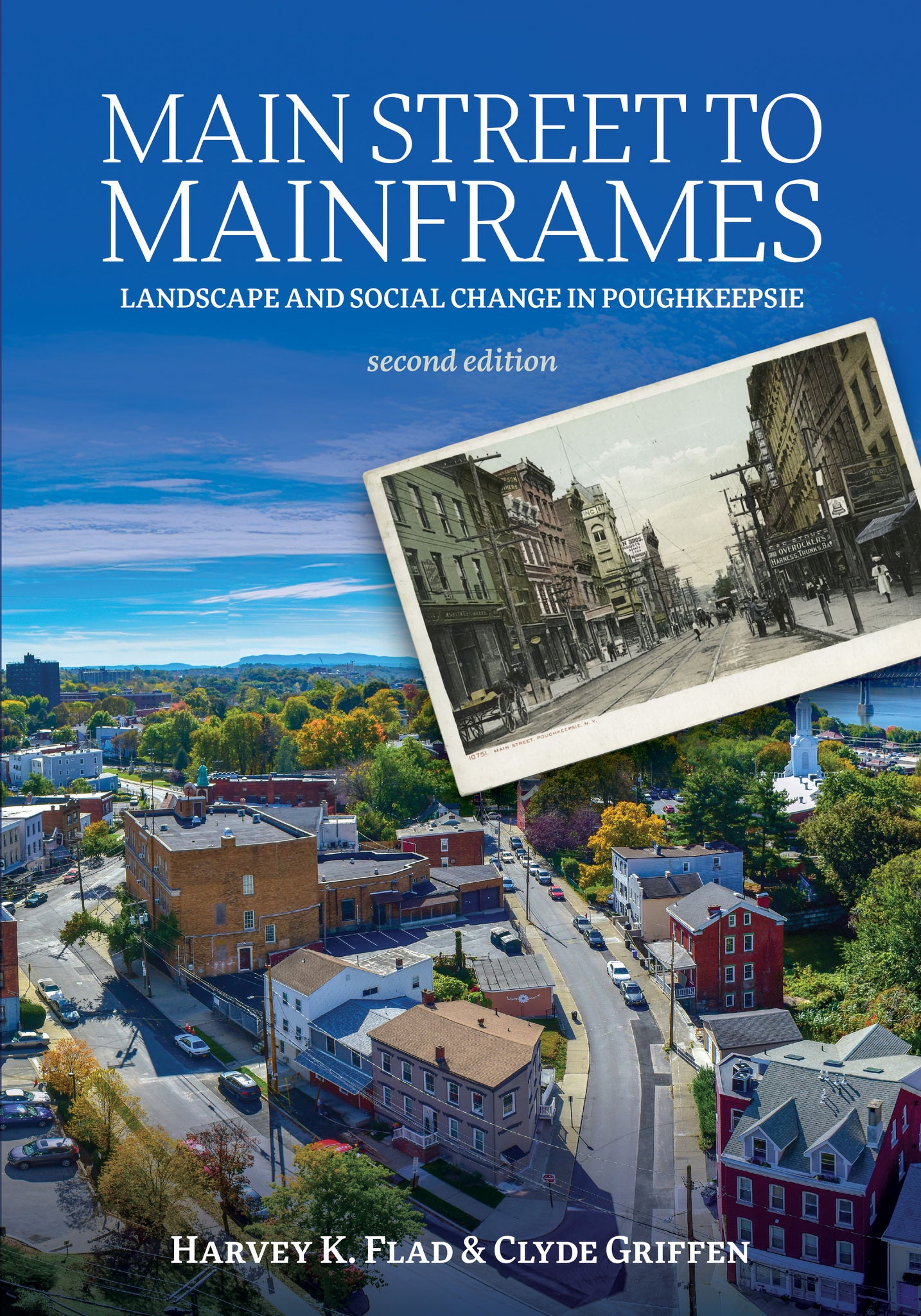We're sorry. An error has occurred
Please cancel or retry.
Main Street to Mainframes

Traces the history of Poughkeepsie's development from the nineteenth through the twentieth and into the challenges of the twenty-first century.
Main Street to Mainframes is an in-depth study of a small American city and its evolution in the twentieth and early twenty-first century. It describes the economic and social changes, as well as the challenges that face the community. This includes Poughkeepsie's unique history and characteristics, as well as trends that are common in many other communities. The text integrates both social history and spatial analysis, describing the city's physical form through time along with its economic growth, decline, and efforts at renewal post-COVID-19 pandemic. The historical narrative is followed by an appendix containing examples of cultural features unique to Poughkeepsie’s past and present, with questions that can serve as discussion points for readers and groups.
As an exploration of a small city that has undergone many of the social and economic problems of much larger urban systems, this book adds important insight into the organic nature of urban systems, including issues of immigration, ethnicity and race, housing and the unhoused, health care, and economic changes in the nation, especially in the growth of the creative and arts-centered economy.


FROM THE REVIEWS OF THE FIRST EDITION
"With an intimate knowledge of the region, [the authors] have compiled a detailed account of their hometown and the surrounding mid-Hudson River valley hinterland. … Flad and Griffen chronicle some of the most important trends that have affected not only Poughkeepsie but other older cities in the northern United States." — Journal of American History
"An ambitious examination of Poughkeepsie and the broader Mid-Hudson region in the nineteenth and twentieth centuries. … Flad and Griffen bring to their study a devotion to Poughkeepsie as community and shared landscape and present a compelling argument for why understanding history is essential to shaping a more inclusive society and economy in the decades to come." — Hudson River Valley Review




